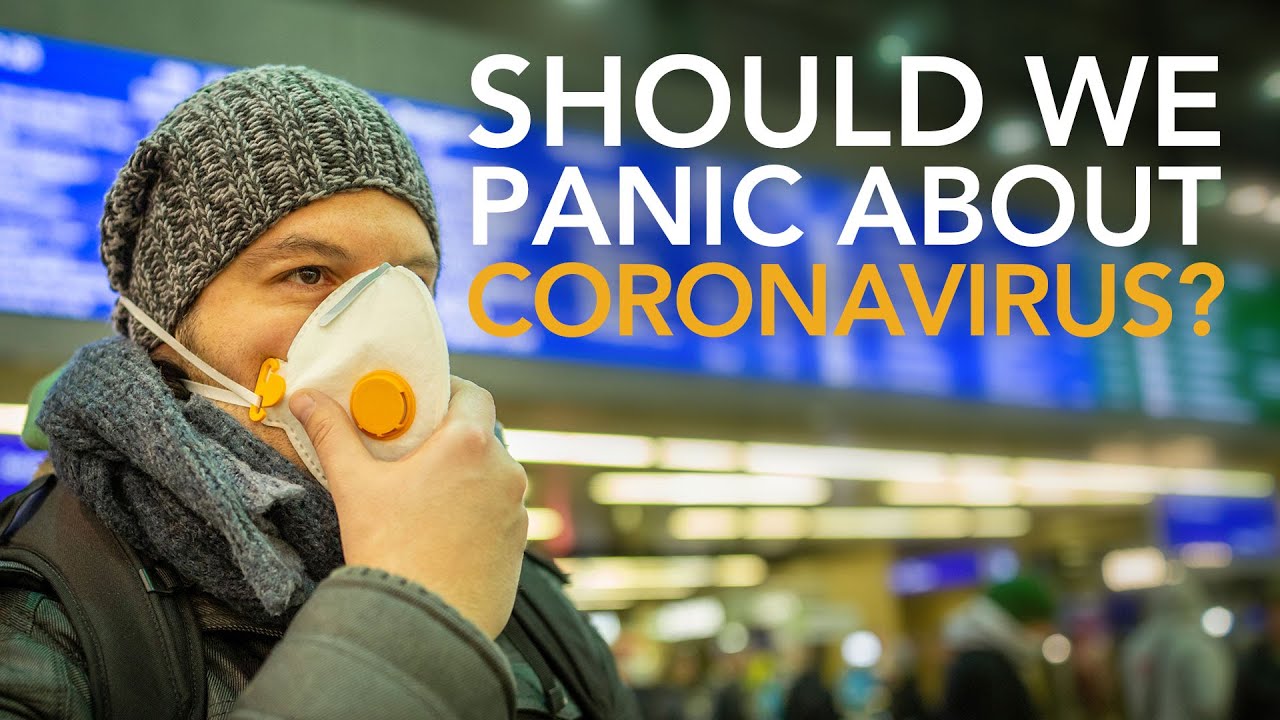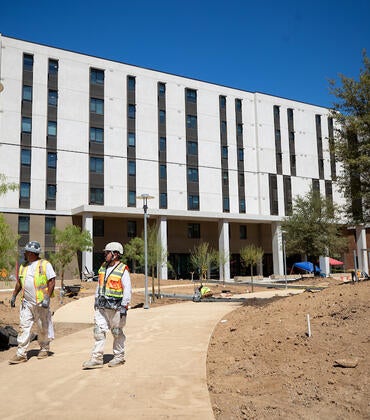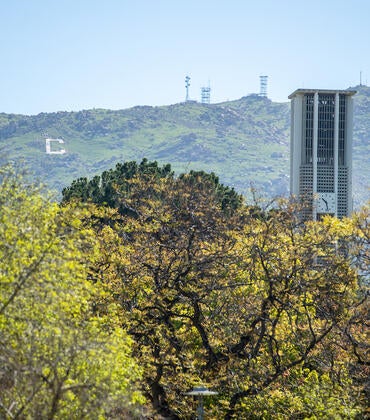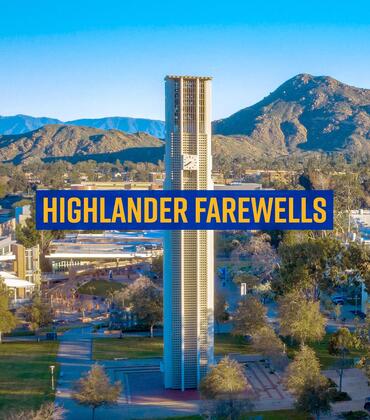UC Riverside Chancellor Kim A. Wilcox and interim Provost and Executive Vice Chancellor Thomas A. Smith shared an update Tuesday on how the campus is responding to the novel coronavirus (COVID-19). An FAQ below provides some additional information and links to resources.
Dear UCR Community,
We write to provide a broad update on UCR’s efforts to address the novel coronavirus (COVID-19). The health and safety of our community remains our top priority, and we are actively monitoring developments locally and abroad.
Presently, there are no confirmed cases in Riverside County, the city of Riverside, or the UC Riverside campus. The campus continues to operate normally.
As noted in media coverage of COVID-19, this is a dynamic situation with COVID-19 infections significantly affecting several countries, including China, South Korea, Italy, and Iran. As a result, the Centers for Disease Control (CDC), along with the UC Office of the President, have instituted travel guidance and proactive measures to prevent further spread of infection.
Below this message, you will also find information about resources and UCR’s efforts to address COVID-19. With circumstances that appear to be changing on a regular basis, we ask that each member of the campus community stay informed about measures to prevent infection and regularly check the following website for the most up-to-date UCR information: https://ehs.ucr.edu/coronavirus.
Thank you for your efforts to help prevent infection; and for everyone’s continued commitment to maintaining a safe and respectful environment, consistent with our Principles of Community.
Sincerely,
Kim A. Wilcox
Chancellor
Thomas M. Smith
Interim Provost and Executive Vice Chancellor
How is UCR responding to the novel coronavirus (COVID-19)?
University leadership has partially activated an Emergency Operations Center and is in frequent contact with the UC Office of the President, Riverside County Public Health, our fellow UC campuses, clinical partners, and elected officials to monitor the situation, to ensure that all appropriate precautions are taken, and to respond quickly and effectively as matters arise.
Other than an on-campus conference that was canceled and a study abroad program that was suspended there have been no major disruptions to university programs and operations so far.
The Student Health Center has implemented a thorough screening process, along with a dedicated nurse line for remote consultations. Our Housing and Dining team has increased the number of hand sanitizers on campus. Our Environmental Health & Safety and Student Health teams are collaborating to raise awareness of best hygiene and flu prevention practices. Moreover, our Risk Management team is working with registered travelers to ensure their whereabouts and prepare for any needed changes in their travel plans.
Campus leadership along with public health partners will continue to evaluate the situation and provide updates to the UCR campus. Health advisories and new information will be shared via email and through the UCR Student Health Services and Environmental Health & Safety websites.
University leaders representing the Executive Management Policy Group are meeting daily to develop and update contingency plans to help ensure continuity of UCR’s operations in the event that there are more direct impacts of COVID-19 on or near the campus.
What are the symptoms of coronavirus?
According to the Centers for Disease Control (CDC), these are a group of viruses that can cause a range of symptoms including a runny nose, cough, sore throat and fever. Some are mild, such as the common cold, while others are more likely to lead to pneumonia. They're usually spread through direct contact with an infected person.
Brandon Brown, epidemiologist in the UCR School of Medicine, answers common questions about coronavirus in this video.
What precautions are recommended?
The CDC recommends regular hand washing with soap and water to prevent infection. If soap and water are not available, alcohol-based hand cleaners with at least 60 percent alcohol are also effective.
Cover your mouth and nose with a tissue when coughing and sneezing and throw away the tissue after you use it. Avoid touching your eyes, nose, or mouth, which can cause the spread of germs.
Additionally, avoid close contact with anyone showing symptoms of respiratory illness such as coughing and sneezing.
If you get sick, the CDC recommends that you seek medical attention; stay home from work or school; and limit contact with others to keep from infecting them.
The CDC has issued the following guidelines for prevention and treatment.
What resources are available to the campus community?
The Environmental Health & Safety website is being updated regularly with new information, frequently asked questions, and best practices as needed. Additional resources also are available on the UCnet website.
UCR community members may experience stress and anxiety as a result of the uncertainties surrounding COVID-19. Employees are encouraged to contact Employee Assistance, while student employees are encouraged to contact Counseling & Psychological Services.
How will this impact travel by UC employees?
Outbound Travel Plans
The UC Office of the President has issued a directive to limit non-essential travel to countries that are designated with a CDC Warning – Level 3 Travel Notice. Presently, these countries include China, South Korea, Italy, and Iran.
With circumstances changing regularly both in United States and around the world, it’s imperative that all faculty, staff, and students traveling abroad for university-related purposes register their international travel with UC Away, before their expected departure and ensure they update this information as changes occur before and during travel.
The campus is currently reviewing travel policy in light of the COVID-19 outbreak, and plans to issue more explicit guidance for all international travel, and specifically for travel to countries with a CDC Warning – Level 3 Travel Notice.
Inbound/Return Travel Plans
UC community members who are currently traveling on university-related business in a country designated with a CDC Warning – Level 3 Travel Notice should plan to immediately leave the area. Upon return, travelers from Level 3 countries, both for university-related business or personal travel, will likely be expected to quarantine for 14 days.
UCR travelers will not be allowed to return to campus until after the quarantine ends. Accordingly, faculty and staff should be in touch with their supervisors to determine measures to work from home or to take leave, as appropriate. Similarly, students should be in contact with their instructors and academic advisors to identify appropriate measures to complete required assignments or tests.
How should the campus treat fellow students and employees?
It’s imperative that all students, faculty and staff uphold a campus culture of respect and uphold our Principles of Community during this critical time.
Employees are reminded not to stigmatize anyone based on national origin.
Students who experience any mistreatment or witness inappropriate behavior can make a report to deanofstudents@ucr.edu. Employees should consult with their direct supervisor if they see or experience inappropriate behavior.





